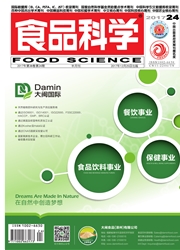

 中文摘要:
中文摘要:
电化学纳米免疫传感器具有检测快速、灵敏、操作简单等优点,在医药、食品、环境及生命科学等领域显示了巨大的应用潜力.本文分析比较了电化学纳米免疫传感器与分析化学仪器检测、免疫检测、以聚合酶链式反应为基础的分子生物学测定技术和基于表面等离子共振、生物薄膜干涉技术的检测方法的优缺点,讨论了电化学纳米免疫传感器本身所面临的免疫结合信号放大处理和商业化应用的两个关键问题,最后,概述了纳米材料在免疫传感器中的应用及电化学纳米免疫传感器在食品检测中的应用并对其在食品检测领域的未来发展作了展望.
 英文摘要:
英文摘要:
Electrochemical nanometer immunosensor has the characteristics of simple operation,accuracy,high sensitivity and good selectivity,where biological sensing chips are used to detect the interaction between antigen and antibody.It has a wide range of applications in the fields of medicine,food,environmental monitoring,drug screening and life science.In this paper,we compare electrochemical nanometer immunosensor with instrumental analysis,immunological detection,polymerase chain reaction (PCR)-based molecular biology detection techniques and surface plasmon resonance (SPR)-and biolayer interferometry (BLI)-based detection techniques for their advantages and drawbacks.We also discusse the two key issues electrochemical nanometer immunosensor itself is facing:immune binding signal amplification processing and commercial application.Finally,we overview the current applications of nanomaterial in the immunosensor and those of electrochemical nanometer immunosensor in food detection,and discuss its future prospects in this area.
 同期刊论文项目
同期刊论文项目
 同项目期刊论文
同项目期刊论文
 期刊信息
期刊信息
